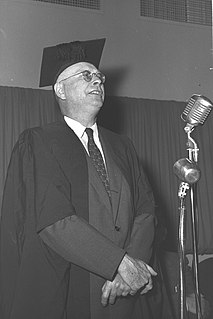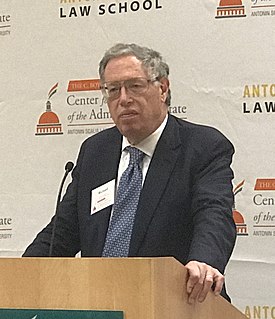A Quote by F. F. Bruce
The variant readings about which any doubt remains among textual critics of the New Testament affect no material question of historic fact or of Christian faith and practice
Related Quotes
The principal problem is that textual data and material remains are often incomplete and sometimes lack adequate context, in order to know precisely how they correlate. Sometimes all we can say is that the textual data and the material remains are probably related but how exactly can't be said until additional discoveries are made.
Contemporary Christian proclamation is faced with the question whether, when it demands faith from men and women, it expects them to acknowledge this mythical world picture from the past. If this is impossible, it has to face the question whether the New Testament proclamation has a truth that is independent of the mythical world picture, in which case it would be the task of theology to demythologize the Christian proclamation.
If we compare the present state of the New Testament text with that of any other ancient writing, we must... declare it to be marvelously correct. Such has been the care with which the New Testament has been copied - a care which has doubtless grown out of true reverence for its holy words.... The New Testament is unrivaled among ancient writings in the purity of its test as actually transmitted and kept in use.
Has the word propitiation any place in your Christianity? In the faith of the New Testament it is central. The love of God, the taking of human form by the Son, the meaning of the cross, Christ's heavenly intercession, the way of salvation-all are to be explained in terms of itand any explanation from which the thought of propitiation is missing will be incomplete, and indeed actually misleading, by New Testament standards
Today there survives more than 25,0000 partial and complete, ancient handwritten manuscript copies of the New Testament. These hand written manuscripts have allowed scholars and textual critics to go back and verify that the Bible we have in our possession today is the same Bible that the early church possessed 2,000 years ago.
As soon as we ask what faith is and what sort of mistreatment of faith causes doubt, we are led to the first major misconception about doubt-the idea that doubt is always wrong because it is the opposite of faith and the same thing as unbelief. What this error leads to is a view of faith that is unrealistic and a view of doubt that is unfair.
The evidence for our New Testament writings is ever so much greater than the evidence for many writings of classical authors, the authenticity of which no one dreams of questioning. And if the New Testament were a collection of secular writings, their authenticity would generally be regarded as beyond all doubt.
Who wrote the Bible? Current scholarship, to my knowledge, assumes that the material that constitutes the Old Testament was put together from various oral and folk traditions (many of them going far back) in the Hellenistic period. That was one of several currents, of which the collection that formed the New Testament was another.
Take faith, for example. For many people in our world, the opposite of faith is doubt. The goal, then, within this understanding, is to eliminate doubt. But faith and doubt aren't opposites. Doubt is often a sign that your faith has a pulse, that it's alive and well and exploring and searching. Faith and doubt aren't opposites, they are, it turns out, excellent dance partners.
You cannot open the pages of the New Testament without realizing that one of the things that makes it so 'new,' in every way, is that here men and women call God 'Father.' This conviction, that we can speak of the Master of the universe in such intimate terms, lies at the heart of the Christian faith.

































